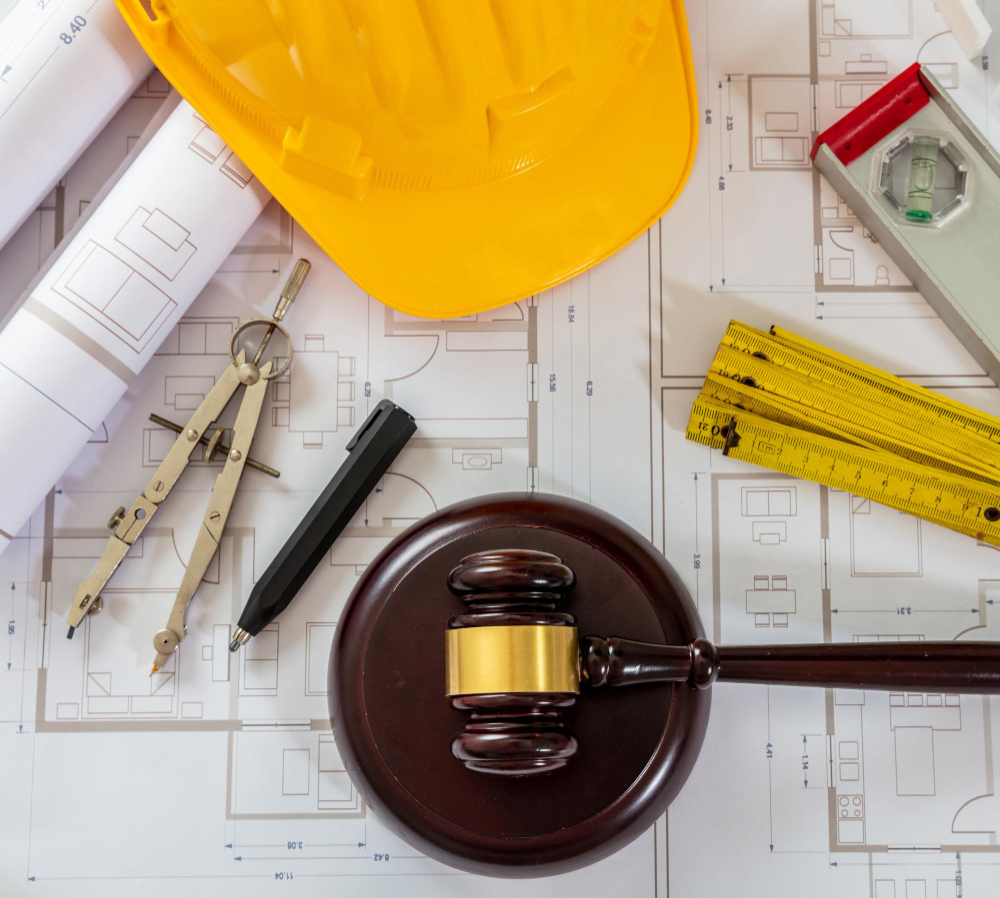1. Introduction & Overview
Landlord consent and approvals is an integral component of new and existing commercial tenancies. In this blog we will give you a general overview of what, in our experience, are the key areas of focus that property professionals should be aware of during commercial transactions.
2. Leasing Requirements
A Commercial Lease is essentially a written agreement between a Landlord and a Tenant, that sets out the terms under which a Tenant may occupy and use a commercial property which is owned by the Landlord.
Leases typically set out basic property details, as the names of the parties, property description, duration of the lease term, along with more complex issues such as the rights, obligations and remedies of both Landlord and Tenant.
Leases typically restrict a Tenant’s ability to undertake any alteration works within the demise without the Landlord’s prior written consent meaning that the Tenant must obtain the consent of their Landlord prior to carrying out any refurbishment/alteration to a leasehold premises. These clauses are usually in place for the following reasons:
o To protect the Landlords’ interest in the property, as ultimately, the Landlord is the owner and will take the property back into their possession upon expiration. During the dilapidations process, we have previously encountered situations whereby Tenant works have been undertaken without any prior Landlord approval, which can lead to a more onerous negotiations process, and in turn, increased costs to strip out for the Tenants.
o To ensure the works are carried out to an appropriate standard for the benefit of both Landlord and Tenant.
o To help avoid any costly repairs incurred by both Landlord and Tenant due to poor workmanship, inherited liabilities, or Health and Safety issues during the course of site works.

3. Legal Obligations & Considerations
There are a number of legal elements that should be considered as part of the Landlord Consent process:
o Planning Legislation, Building Regulations and Civil Law obligations are superior to any Lease Agreement, which may be relative to any proposed alterations. Reference is found within a specific schedule in the Lease, separate to any Landlord Approval clause, and on occasion, we have found that this important matter can often be overlooked with Tenants being unaware of the importance of these obligations.
o Both the Landlord and Tenant will need to satisfy themselves that any proposed alterations comply with Irish Building Regulations and Health & Safety Legislation.
o Any proposed works by a Tenant may have an impact on the demise at Lease Termination and it may be a costly exercise to reinstate a unit when it comes to Terminal Dilapidations.
For example, there may be provisions within the Lease to state that the Landlord can require the Tenant to remove all installations, such as their fit-out, and return the space to its original condition which can be a costly exercise for the Tenant.
We have found that in some situations, the Tenant may not have been fully advised of these obligations, and we always advise our clients that they have the Lease obligations fully reviewed prior to planning any works, to avoid costly shocks at Dilapidations stage.
The above examples indicate how important it is that a full review of the Lease is undertaken prior to works starting on site and that Landlords, and Tenants in particular, seek the advice of a Chartered Building Surveyor in relation to their potential liabilities.
4. Landlord Consent Process
4.1 Permission & Due Process
It is common that a request for Landlord Consent is provided at the start of a new Lease Agreement e.g., if a Tenant wishes to undertake fit-out works prior to them taking occupancy. Potential works to a demise are often incorporated into Agreements for Lease (AFL), for example, details of the Tenant’s proposed fit-out and dates for completion of same.
In our view, it is standard practice that a Lease would state that Landlord consent is required for any alterations. Without this consent in advance of undertaking works, a Tenant would be in breach of the covenants in their lease. In such a situation, if a Tenant were to proceed to carry out any works/alterations without the prior consent of the Landlord, not only can they be required to remove the alterations once the Landlord become aware, but they may also be required to reimburse the landlord for any damage or loss (including for example, loss of rent, and other financial losses) that the Landlord has incurred as a result.
Unauthorised alterations or works may pose a risk if a Tenant wishes to sub-let the demise. The tenant may be required to convey that they had obtained the required Landlord consent prior to any alteration works being undertaken. Ultimately, a tenant risks their lease being forfeit if they remain in persistent breach of covenant, however, in our experience, this is a rare occurrence.

4.2 Approvals Process & Requirements
If a Tenant intends to undertake any refurbishment/alteration works within a demise, they will likely appoint or have already appointed a Design Team to manage their works and Consent processes on their behalf. In our experience, once a Landlord is formally notified of any intention to undertake Tenant fitout works, they request us to manage and assess the Tenant’s proposed works on their behalf.
Building Surveyors are typically appointed to act in this capacity due, not only to the construction technicalities – for example, interaction with existing building structures and services, but also due to the implications of any proposed works on the Lease.
The Tenant or their appointed representatives must make a formal request in writing for Landlord Consent, prior to any works being undertaken. Knight Frank Building Consultancy operate a stringent Request for Information (RFI) process, and as standard, we request a detailed pack of information containing the following information at a minimum:
Insurance Information
Design Team & Main Contractor and sub-contractors, to include expiration dates for insurance policies. Indemnity to specific Landlord and their Managing Agent is typically requested.
Project Programme
To include commencement and completion dates, plus project phases.
Contact details
entire project team. Recommended to have one main point of contact who will liaise with Landlord’s appointed representative.
Construction Drawings
Drawing information and specifications of work which are sufficient to enable a full technical assessment by the Landlords representative. Particular attention should be paid to interfaces with the Landlord Common parts, structure, and services, especially Life Safety.
Statutory & Technical Details
Information on any proposed works affecting the existing physical structure of the property and its Fire Resistance, details on interconnection with existing LL Life Safety Systems and any disturbance to concealed voids, e.g., Firestopping and cavity barriers.
Health & Safety Information
The Tenant should provide an undertaking that all works will be carried out in accordance with current Health & Safety Acts and Regulations, and all Codes of Practice, in conjunction with the Preliminary Health & Safety and Construction Stage Health & Safety Plans.
Statutory Applications & Copies of Statutory Grants
The Tenant is responsible for ensuring that the works are / are not required to obtain relevant approvals such as Fire Safety Certs, Accessibility Certs and Planning Permission. The Tenant should also provide confirmation if these are not required, and evidence to demonstrate same.
The information provided by the Tenant undergoes a thorough technical assessment, with particular reference to making sure the tenant’s alterations do not negatively affect the value or reputation of the property, in essence, to preserve the Landlord’s investment. Other considerations include:
o Ensuring the works will be carried out to the appropriate standard and have all the necessary Statutory permissions, e.g., Planning Permission, BCAR, etc.
o Preserving the external appearance and prevention of external damage to the property.
o Ensuring the Landlord does not become liable under any Legislation or third party as a result of the works.
o Ensuring the works do not alter the energy efficiency rating of the property.
o On receipt and approval of all information, formal Landlord Consent will be provided to the Tenant. In some circumstances, a Licence for Works is granted by the Landlord’s legal representatives.

4.3 Completion of Approvals Process
o On completion of the works the Tenant must provide confirmation (typically by submittal of appropriate Certification) that all installed services are compliant with relevant Standards and Legislation, within 20 days of completion of site works.
o It is important to note that until a Completion Notice has been uploaded to BCMS, and reference number provided to the Landlord, the Tenant is not permitted to use or occupy the building. This is common in retail and can affect insurances, rent free periods, etc, and we have found that this important point can also be overlooked, or not discussed in detail with the parties.
o It is good practice for a Schedule of Condition to be undertaken to record the condition of the demise, which should be appended to the Lease Agreement. This is recommended to limit the Tenant’s repairing obligations by ensuring that they do not have to return the demise to any better condition. The Schedule of Condition is recommended to be agreed and signed by both Landlord and Tenant.
5. Unreasonable Withholding of Consent
It is rare, but does occur, whereby a Landlord will not provide consent for Tenant works. The Landlord and Tenant Act inserts a clause in most commercial leases that Landlord Consent cannot be unreasonably withheld to alterations/works which are deemed an ‘improvement’. An ‘improvement’ typically incorporates any addition or alteration of a building/structure. The term can also extend to a structure which is ancillary or subsidiary to a property.
If, in the Tenant’s opinion, the Landlord is unreasonably withholding consent to an improvement, or acting unreasonably, for example, not approving the works in a timely and reasonable manner or not engaging with the Tenant or their representatives, the Tenant can seek Legal advice on the matter.
6. Financial Information
It is important to highlight that the fees incurred by a Landlord for the Landlord Consent process may be recovered from the Tenant. This is typically pursuant to an express provision in the lease, usually under the heading of ‘Pay Costs’. This would typically include any fees or costs borne by the landlord as a result of the Tenant undertaking their works, inclusive of :
o Surveyors’ fees.
o Legal fees.
o Charges for attendances by incumbent contractors, for example, fire alarm / M&E, access control, cleaning, etc.
As good practice, the Tenant should be made aware of this important point from the outset, as this will likely not have been pointed out to them during the signing of their Lease Agreement and it may be unwelcome news as it will increase the cost of the Tenant’s works/project. A written undertaking is required from the Tenant from the outset of the process, as they will be legally bound to pay the above fees in advance.

7. Conclusion
This is an important legal process and the engagement of the right people from the start will ensure that:
a. Obtaining Landlord Consent will allow a Tenant to carry out their proposed works and to help avoid any overly onerous obligations or costly repairs further down the line.
b. Ensure the works are carried out to the appropriate standard for the Landlord’s behalf in order to help avoid any costly or inherited liabilities.
For more information please contact Susan Hickey, Building Surveyor, within the Knight Frank Building Consultancy Team on 01 237 4529 or susan.hickey@ie.knightfrank.com.